What is skin toner and do you really need to use it?
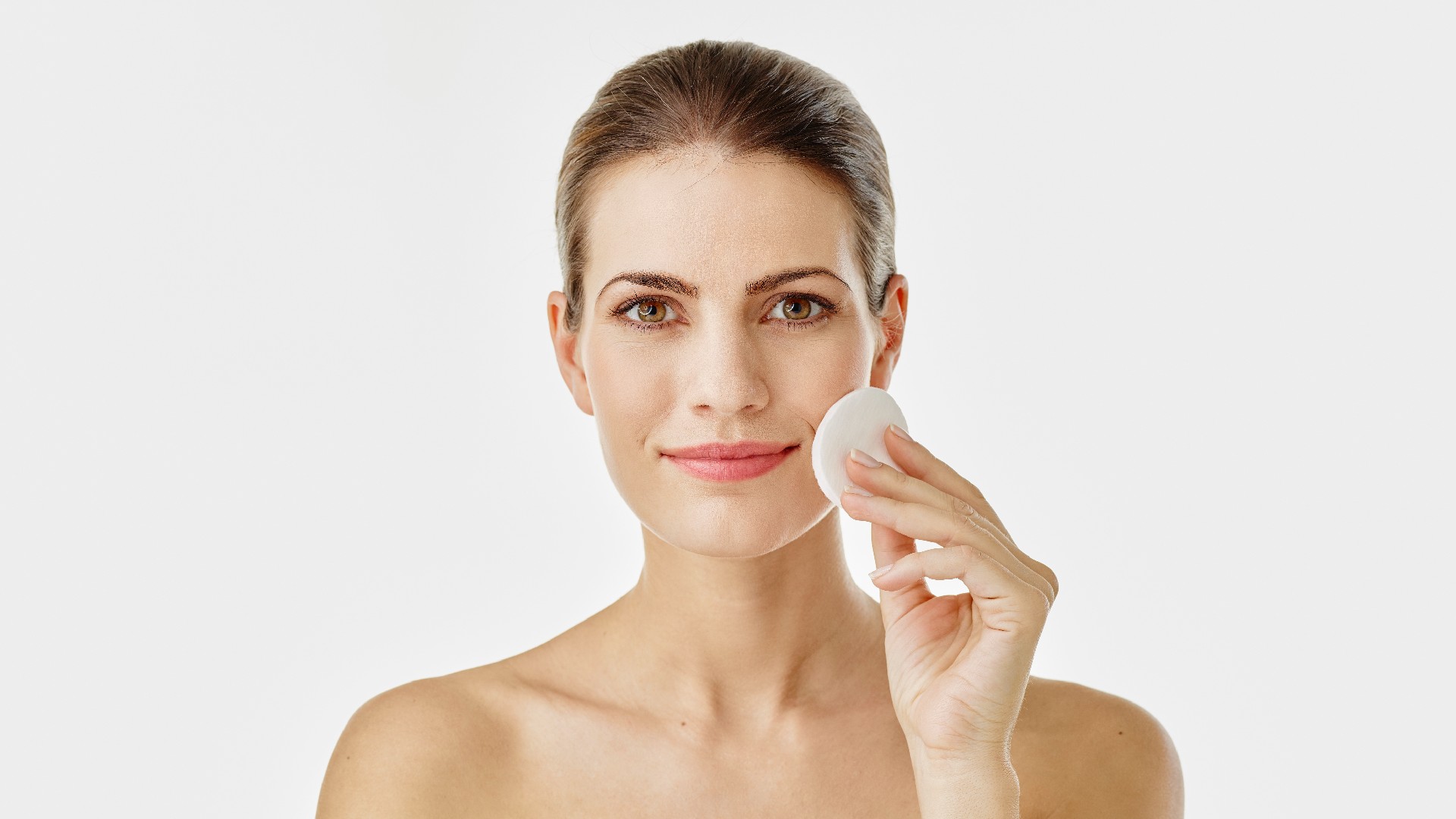

What is skin toner and do you really need to use it? We ask the experts for their guidance
With new beauty products launching all the time, it’s easy to get swept up by slick skincare marketing and fancy-sounding ingredients. In the case of toner, beauty experts remain divided on whether or not it is in fact an essential step in an-already busy skincare regime.
If you sit firmly in the cleanse and go camp, you’re probably thinking, “here we go, another step I’ve got to add into my daily routine.” Followers of a more labour-intensive, Korean-inspired multi-step routine are more than likely already using toner. Whichever category you fall into - toner devotee or toner naysayer - it seems we’re more intrigued than ever with this contentious skincare step.
According to Google Trends, searches for ‘toner’ have gone up by 250 per cent since the start of October 2021. Perhaps this surge is inspired by the colder, moisture-sapping winter weather, or maybe we're all just looking for ways to look less tired as the longer nights draw in.
Most experts agree that cleanse, moisturise and protect by wearing the best sunscreen for your face (throughout the year) are the non-negotiable parts of any skin regime. So where does toner fit into all of this, and is it truly necessary? We grilled some top dermatologists to find out.
What is skin toner?
Skin toner is a liquid product (that looks just like water), which is used after cleansing, before serums and moisturiser. You splash the toner on a cotton pad and sweep over your face, no need to rinse. Traditionally, toner was thought to shrink pores but nothing can constrict your pores. What toner does do, however, is help to remove whatever dirt, oil, cleanser and make-up is left after cleansing. This can help prevent your skin from looking dull, by removing product build up.
Toners of old earned a bad reputation. Their goal was to balance excess sebum and they were so effective at diminishing oil, they became known for drying out the skin. Nowadays, most are alcohol-free, and are geared towards different complexion niggles. Some toners have exfoliating properties and can be used to hydrate skin. Toner can also help reduce spots on your face or get rid of liver spots.
Do you need to use a toner?
“No, toners are not necessary for skin health, so you don't need to use one” states Dr Sonia Khorana, GP with Special Interest in Dermatology and Cosmetic Doctor. “Toners were previously used to remove whatever was left behind of your make-up and dirt after cleansing and balance skin pH. Nowadays, most cleansers are pH balanced now and pretty good at removing everything,” she explains. So while toner isn’t an absolute necessity for a healthy, glowing complexion, it can certainly help. As Dr Sonia says, “Toners can offer additional skin benefits if you have a specific skin concern to target."
Eucerin’s Professional Expertise Manager, Dylan Griffiths agrees. "Adding a toner that is well-matched to your skin type can provide additional benefits such as enhancing the absorption, and therefore efficacy, of your other skincare products. For instance, adding a hyaluronic acid-based serum on skin slightly dampened with toner will draw in water, resulting in a plumper and more hydrated complexion."
“A slightly acidic toner is great to help rebuild the skin barrier,” adds Dr. Marie Drago, microbiome expert and founder of Gallinée. “If the acid comes from Alpha Hydroxy Acid, it will also help get rid of dead skin cells and improve glow. Then depending on the toner and the skin type, it can be refining pores, hydrating or soothing.”
3 benefits of skin toner
A toner might not be necessary for all - especially if you favour a speedy, streamlined skincare routine. But, the right one certainly has some skin-boosting perks. These are the main benefits of using a skin toner:
- It will balance your pH
The skin’s pH level sits around 5.5, while water has a level of 7 so if you splash your face after cleansing it will affect this delicate balance. One of the functions of toner is to bring the skin back to its natural pH level. However, we will caveat this to say that many cleansers nowadays are pH-balanced, which will also restore its acidic state.
- You can target your skin type
Toners aren’t a one-size-fits-all product. There are toners that offer additional skin benefits, with ingredients targeted to address different skin concerns. “It is important to know which ingredients to look for and which ones to avoid based on your skin type,” says Dr Sonia Khorana. “For example, Salicylic acid for people who are breakout prone.” Those with dry, sensitive complexions should look for gentle ingredients like Aloe Vera and rosewater.
- Your wrinkle creams will work better
Using a toner means your skin is primed and ready for any subsequent creams you apply. Washing your face with water after cleansing means the pH is disrupted and your moisturiser has to work twice as hard to bring the skin back to normal before it can get to work on its anti-ageing agenda. So in neglecting your pH, you could be wasting hard-earned cash on dream creams that can’t live up to their full potential.
Can I use toner if I have sensitive skin?
Yes, you can use a toner if you have sensitive skin, but it's best to choose a product that has been formulated for your skin type.
According to Mintel, one in three women has sensitive skin, and if you sit within that 33 per cent, you’ll know how easy it is to trigger a reactive complexion.
“I have found that people are often scared of using multiple ingredients on dry, reactive, or sensitive skin, so tend to keep skincare regimes very simple,” says Dr Emma Craythorne, Consultant Dermatologist at Harley Street, President of the British Cosmetic Dermatology Group and Host of The Bad Skin. “They also don’t think they can achieve a glowing radiant complexion as many patients, rightly so, are concerned that the effects of using active ingredients can irritate the skin and cause further inflammation.”
Sensitive skin has a lot to do with the skin barrier, also known as the lipid or moisture barrier. This outer layer works as a protectant, keeping irritants out, and locking moisture in. When it’s compromised, you may notice rough, dull, red and sensitive skin. "When this happens, it is important to strip back our routine and ensure we are adding in plenty of soothing and moisturising formulas with no actives while the barrier heals," advises Eucerin's Dylan Griffiths.
Dr Craythorne adds, “use ingredients that will help to restore the skin barrier and reduce inflammation, like Niacinamide.” Niacinamide is a useful ingredient in toner - not only does it have an anti-inflammatory effect, but it’s an efficient skin-brightener too.
“Look for gentle toners that contain ingredients like hyaluronic acid, glycerin and some plant extracts,” adds Dr Sonia. “And trying to stay away from ingredients like fragrances or drying/denatured alcohol is a good idea if you have sensitive skin. Fragrance is not bad for everyone, but for people who suffer with sensitivity, it can irritate, while denat alcohol can dry out the skin.”
Dr. Marie Drago warns, “There are also a lot of glycolic acid toners on the market that might not suit sensitive skin.” If you are looking to brighten with exfoliating toners, work them into your regime gradually. "Everyone’s skin is different," says Dylan, "but if your skin is particularly reactive, always test first on a small patch of skin."
5 of the best skin toners
Gallinée Face Vinegar
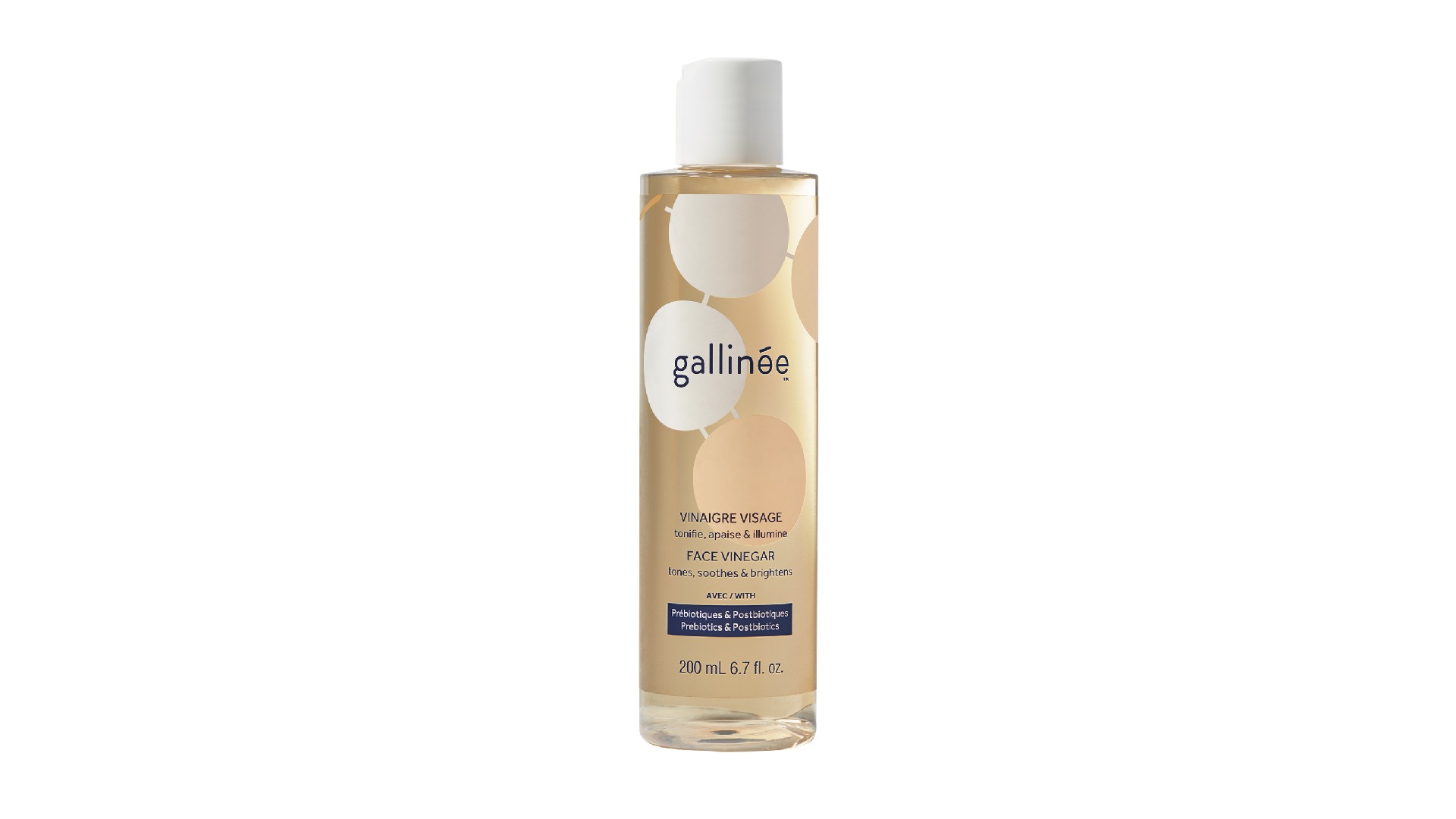
Human skin has 1 million microbiomes per square centimetre and this bacteria is a crucial component of our skin barrier. By balancing and nourishing these microbes with pre- and probiotic skincare, you can improve barrier function and calm sensitive skin. This is like plant food for your microbiome, giving those good guys the perfect environment to thrive. The result is smoother, softer and less reactive skin. Splash on to a cotton pad and sweep over skin twice a day, before serum and moisturiser.
Eucerin DermatoClean Toner
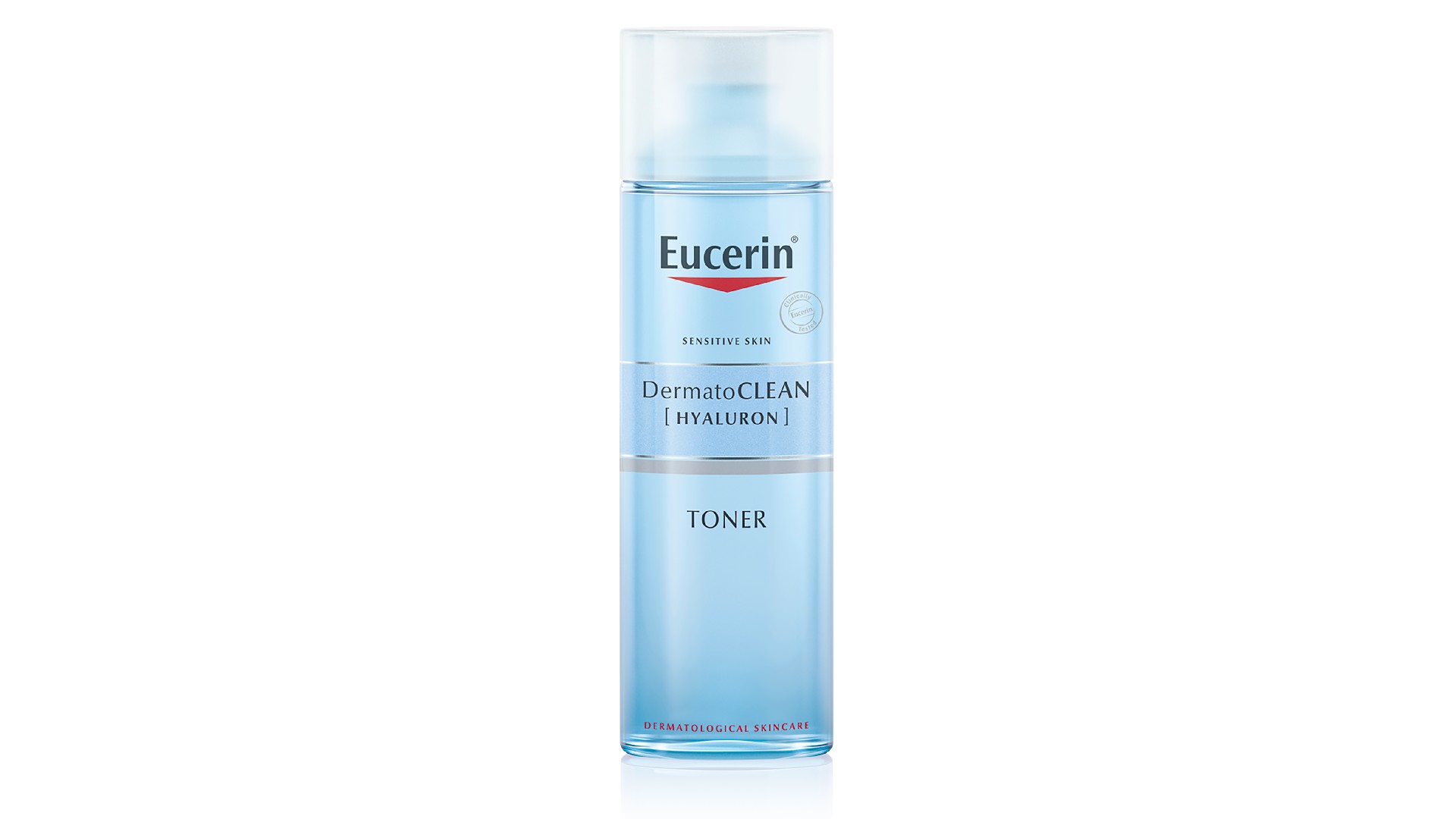
Sensitive skin can breathe easy knowing this is fragrance-, alcohol-, paraben- and colourant-free. It provides a deep cleanse with added moisture-binding ingredients that refresh and quench dry, tight-feeling skin. It’s even been found to boost the skin’s oxygen uptake.
Kiehl’s Heritage Rosewater Toner
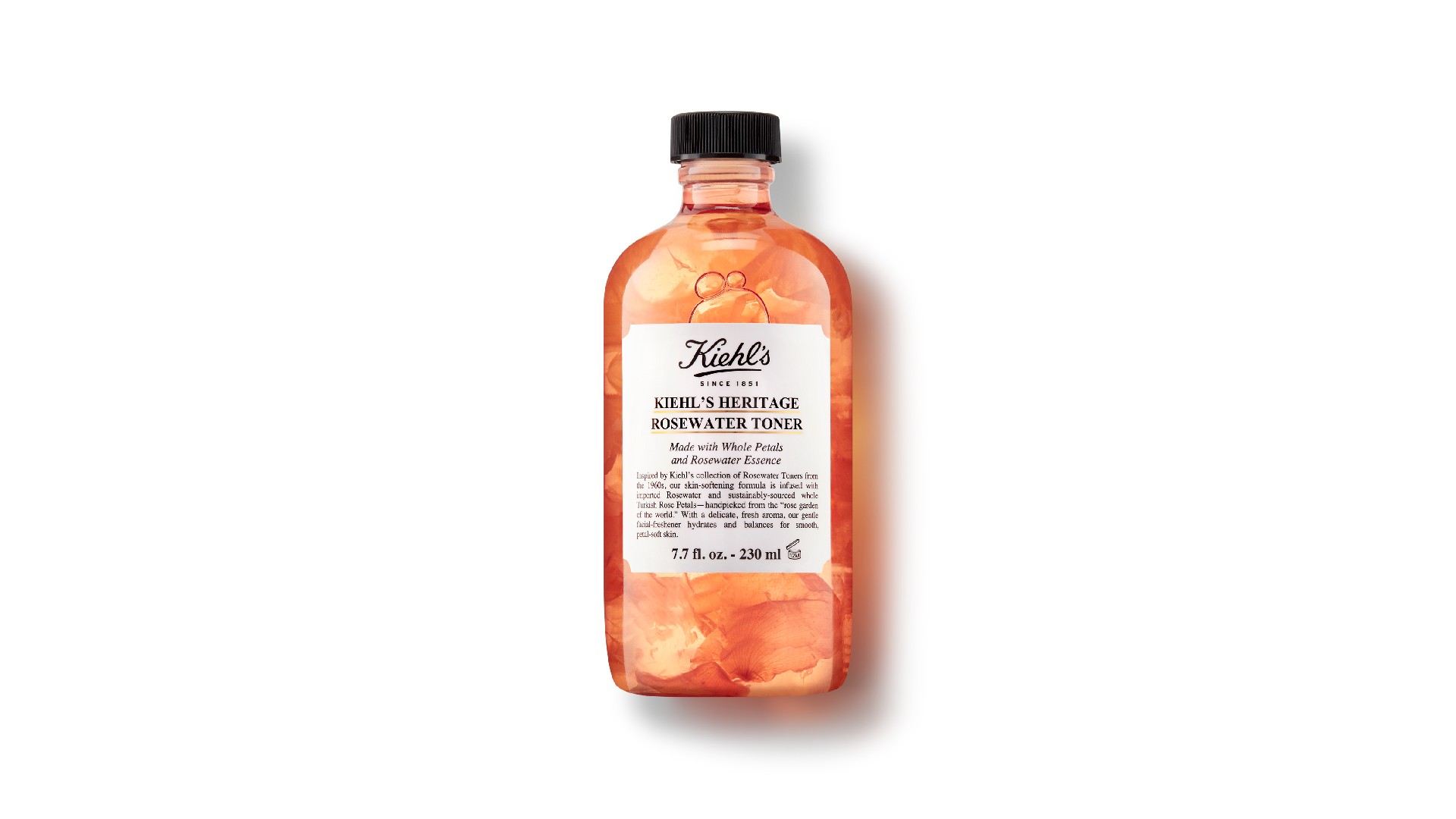
If you have touchy, sensitive skin prone to redness, go for a natural toner like rosewater. It's been used for centuries to treat and balance the skin. Rosewater has fantastic antibacterial properties, and is loaded with antioxidants. This skin-softening formula has a beautiful petal-pretty scent and works to bring the skin back to epidermal heaven.
Cetaphil Healthy Radiance Brightness Refresh Toner
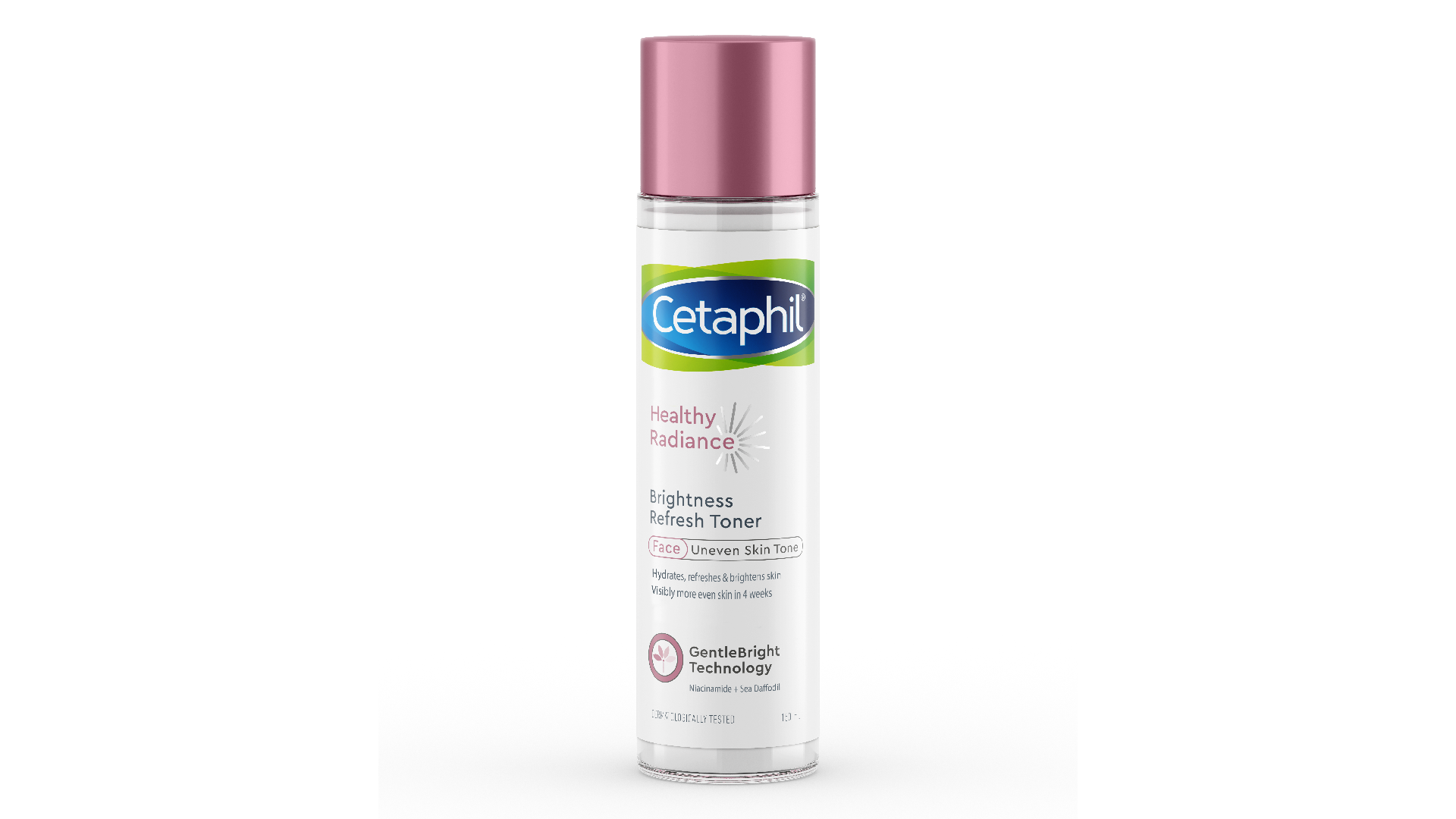
VIEW NOW – FEEL UNIQUE | £15.99
Cetaphil is often recommended by skin experts for being kind to sensitive skin. This new range has been created with dermatologists to restore radiance without aggravating sensitive skin. Sea Daffodil has anti-inflammatory properties to calm skin as it evens out pigmentation. Working alongside it is brightening ingredient, Niacinamide, which also helps strengthen the skin’s barrier function.
The Inkey List PHA Toner
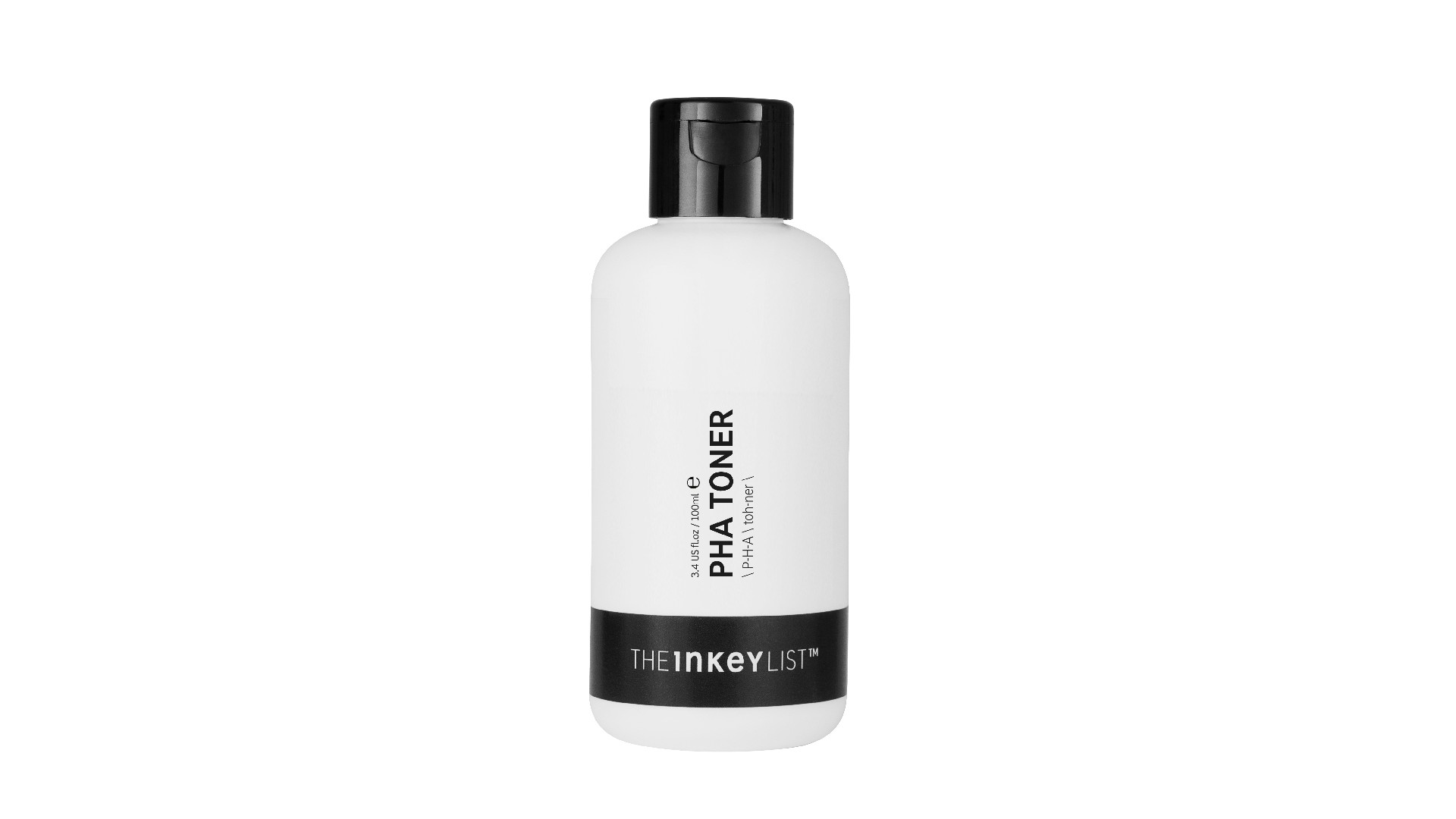
VIEW NOW – LOOK FANTASTIC | £9.99
Polyhydroxy acids (PHAs) exfoliate the skin surface, and are ideal for congested, dull and rough skin. PHAs are exfoliants made for sensitive skins, and are much kinder than their chemical counterparts, Alpha Hydroxy Acids and Beta Hydroxy Acids. They are the gentlest way aid the skin's natural shedding process, clear blocked pores and create a brighter, smoother complexion.
GoodtoKnow Newsletter
Parenting advice, hot topics, best buys and family finance tips delivered straight to your inbox.

Stephanie is a Beauty Editor across five national women’s magazine titles, with more than fifteen years’ experience working within the beauty industry. She has been shortlisted for multiple awards at the J&J Beauty Journalism Awards, and was the runner-up at the Wella Hair Journalism Awards in 2009. She has written for many brands, including Grazia, Now, More!, Fabulous, Woman & Home, NW, Woman, Woman's Own, Woman's Weekly, Essentials, Best, Chat, Pick Me Up and OK! Online. In 2010 she launched her own beauty blog, which was also shortlisted for Best Beauty Blog in the 2011 and 2012 J&J Beauty Journalism Awards.
-
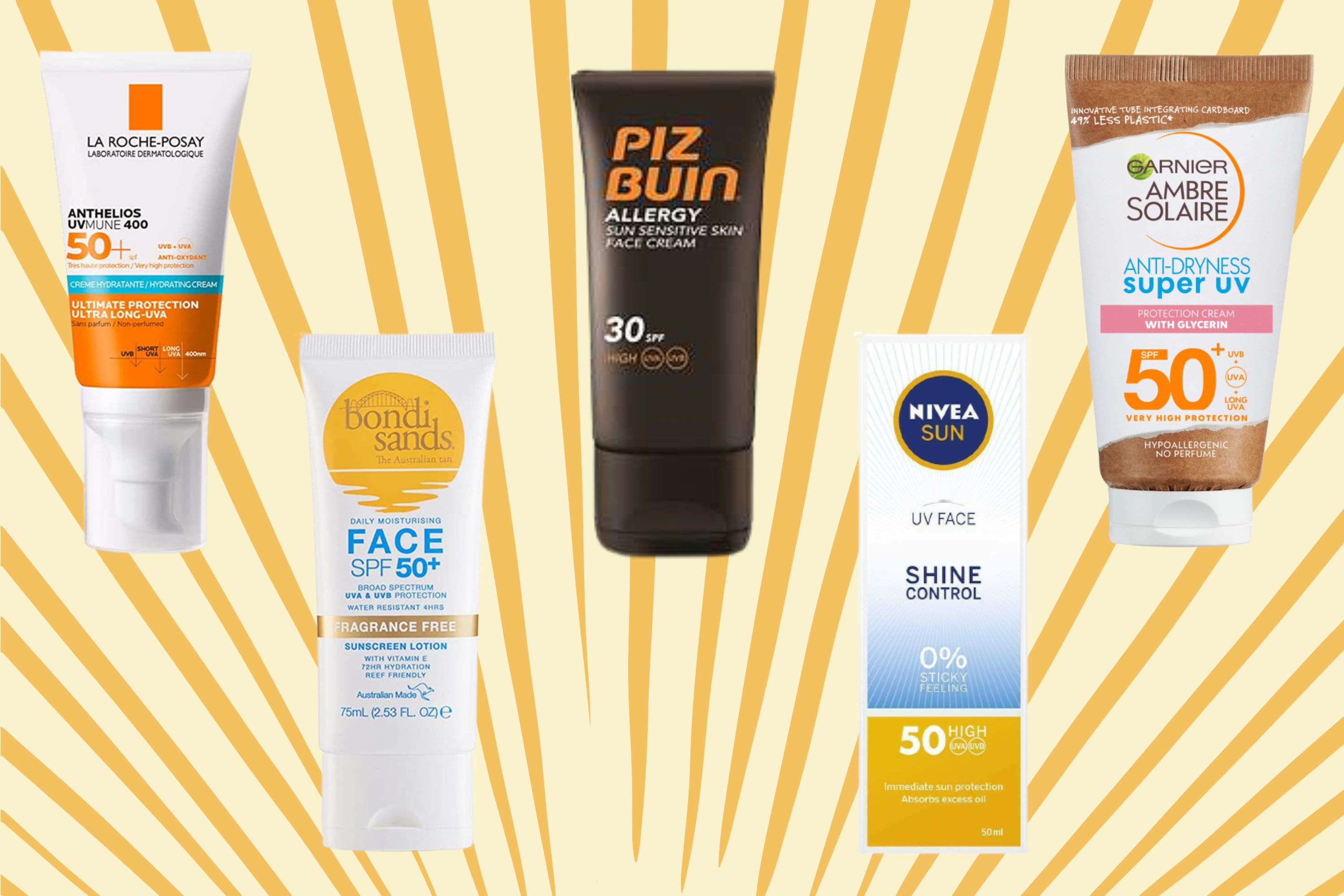 Best sunscreen for your face - the tried and tested formulas you'll love
Best sunscreen for your face - the tried and tested formulas you'll lovePicking the best sunscreen for your face will keep your skin protected all year long. Here, our beauty team and a panel of dermatologists share their favorites.
By Jess Beech Published
-
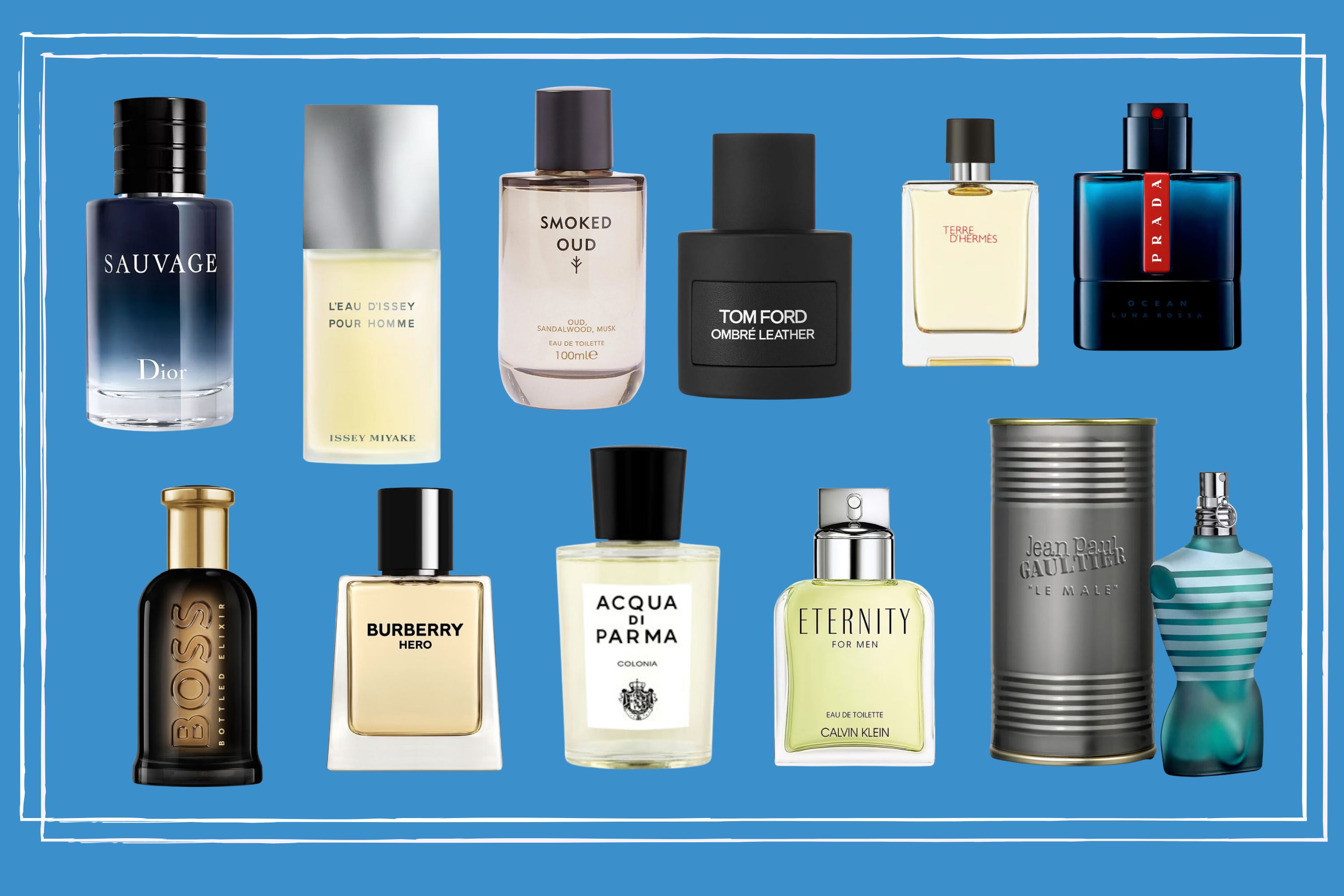 Best aftershaves for dads: last chance to snap up a fresh scent with next-day delivery in time for Father's Day!
Best aftershaves for dads: last chance to snap up a fresh scent with next-day delivery in time for Father's Day!Looking for a new fragrance for an important fella? These are the best aftershaves for dads
By Becks Shepherd Published
-
 Journals for parents: 9 of the best positivity planners and 5-minute diaries to record special moments and manage anxieties
Journals for parents: 9 of the best positivity planners and 5-minute diaries to record special moments and manage anxietiesThe best journals for parents can help navigate the ups and downs of family life - from recording special memories to working through difficult emotions when things get tough.
By Ellie Hutchings Published
-
 I've been sober for a year and these are the best non-alcoholic wines that don't make me feel like I'm missing out
I've been sober for a year and these are the best non-alcoholic wines that don't make me feel like I'm missing outThe best non-alcoholic wines aren't just for Christmas - you'll want to sip these booze-free options all year round
By Ellie Hutchings Last updated
-
 11 best perfume advent calendars 2024: From Lancome and L'Occitane to Molton Brown and Rituals
11 best perfume advent calendars 2024: From Lancome and L'Occitane to Molton Brown and RitualsThe best perfume advent calendars will count you down to Christmas with a new scent every day. Here, our beauty writer rounds up her top picks.
By Annie Milroy Last updated
-
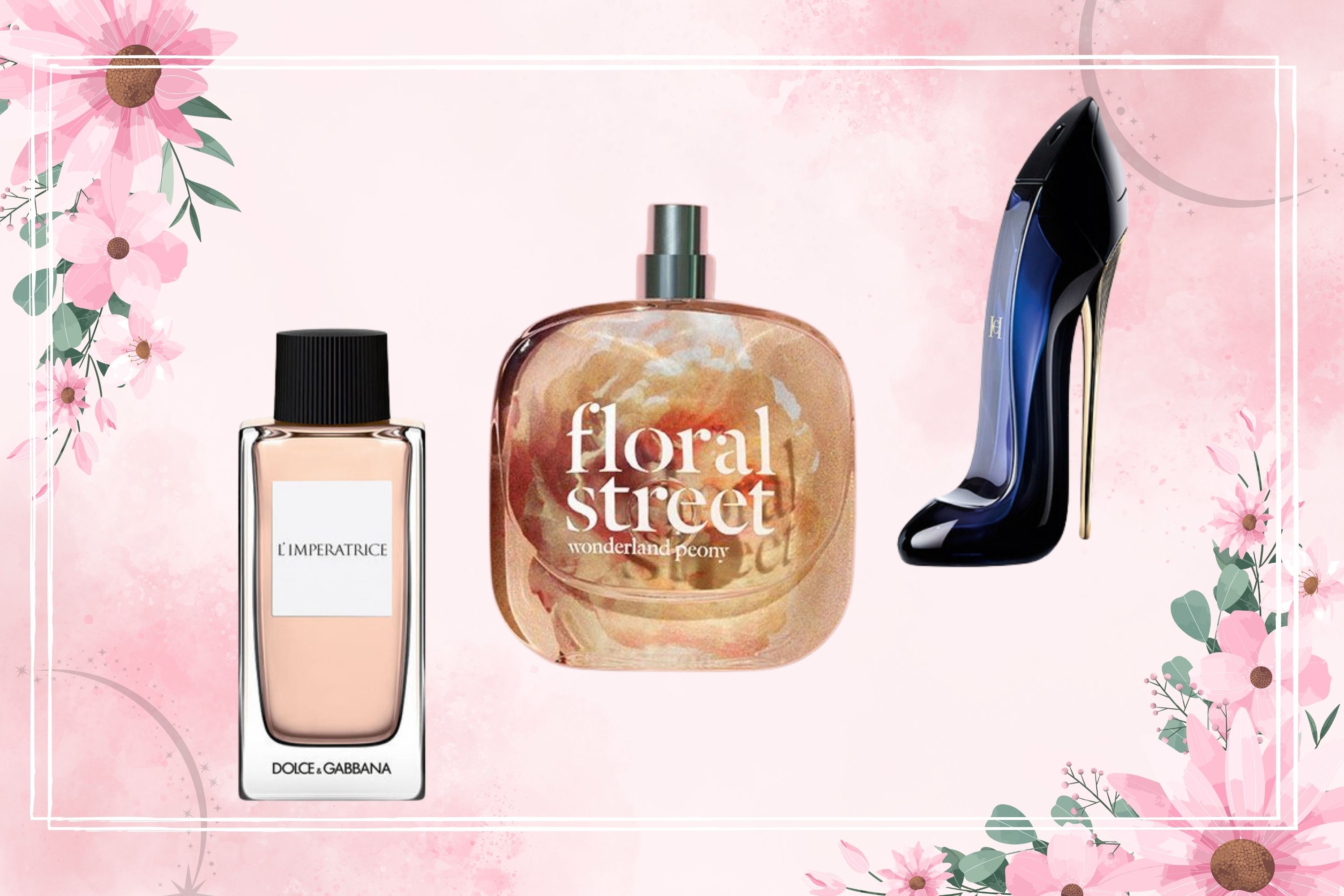 15 best long-lasting perfumes rated by us - and better still, they're all under £70
15 best long-lasting perfumes rated by us - and better still, they're all under £70From Dolce & Gabbana and Chloé to Glossier and Caudalie, these are our favourite perfumes that last all day
By Ellie Hutchings Last updated
-
 A Feminist's Guide to Motherhood by Poppy O'Neill - a guilt-free parenting guide
A Feminist's Guide to Motherhood by Poppy O'Neill - a guilt-free parenting guideAdvice that covers how to know and grow your power as a mother? We're in.
By Heidi Scrimgeour Published
-
 16 mood-boosting products to beat the January blues - and they're perfect for self-gifting too
16 mood-boosting products to beat the January blues - and they're perfect for self-gifting tooBlue Monday is a myth - so let's make it a happy Monday
By Heidi Scrimgeour Last updated